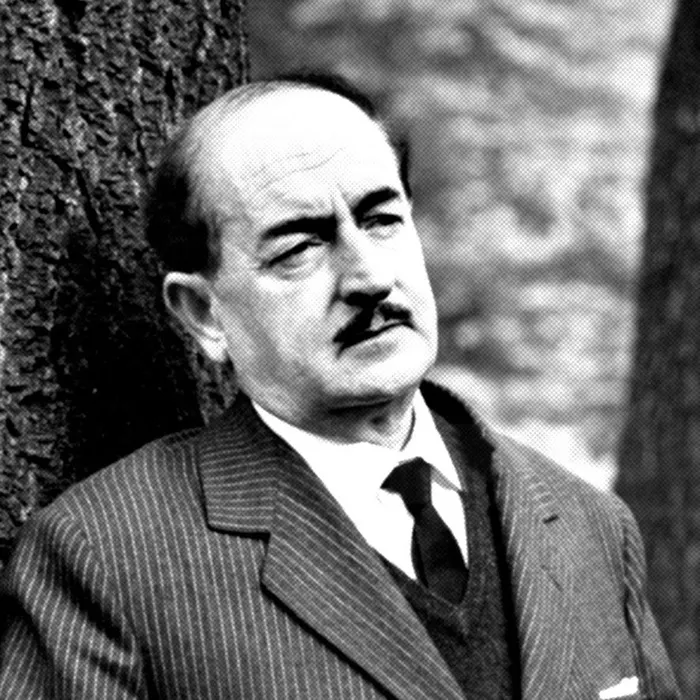
Salvatore Quasimodo (1901-1968) was an Italian poet and translator, renowned for his work within the Hermetic movement. His poignant poetry, deeply influenced by World War II and the tensions of his time, earned him the Nobel Prize for Literature in 1959. Quasimodo’s verse often reflects themes of solitude, suffering, and the search for human connection amidst despair.
Salvatore Quasimodo Biography
Salvatore Quasimodo was born on August 20, 1901, in Modica, a small town in Sicily. Raised in a family that valued literature, Quasimodo developed an early love for the arts. He attended the University of Messina, where he studied engineering but also nurtured his passion for poetry. His early works were strongly influenced by the classical Italian literary tradition, and he was part of the literary circles in Sicily that were exploring modernist approaches to poetry.
Quasimodo’s life took a dramatic turn when he joined the Italian army during World War II. The experiences of war and its traumatic effects on humanity would shape much of his later poetry. His work became increasingly introspective, exploring themes of human suffering, alienation, and the moral costs of war. His poetry’s darker tone is also a reaction to the political climate of Fascist Italy and the broader devastation of the post-war period.
During his career, Quasimodo embraced the Hermetic style of poetry, which is known for its minimalistic and often cryptic approach. The movement emphasized the inner life of the individual over external events, using condensed language and rich symbolism to convey meaning. Quasimodo’s style evolved over time, but his commitment to emotional depth and philosophical inquiry remained consistent throughout his work.
In 1959, Quasimodo was awarded the Nobel Prize for Literature in recognition of his poetic achievement, particularly his exploration of human suffering and his contribution to the modern Italian literary canon. His most famous works, including “Acque e Terre” (Water and Earth) and “La Terra Impareggiabile” (The Matchless Earth), are considered milestones in Italian poetry. Quasimodo’s international recognition helped to elevate the stature of modern Italian poetry and the Hermetic movement.
Despite his fame, Quasimodo’s later years were marked by personal challenges, including the loss of his wife and his struggles with health. He continued to write and translate poetry until his death on June 14, 1968. Today, Quasimodo is remembered as one of Italy’s most important 20th-century poets, whose works resonate with themes of human resilience, pain, and hope.
Salvatore Quasimodo Poems
Salvatore Quasimodo Quotes
1. “La poesia è la verità che si nasconde nella lingua della reaità.” (Poetry is the truth that hides itself in the language of reality.)
2. “Non si può morire a metà, come non si può vivere a metà.” (One cannot die halfway, just as one cannot live halfway.)
3. “Il poeta è un uomo che sa guardare.” (The poet is a manwho knows how to look.)
4. “lo sono un uomo che non ha trovato pace.” (I am a man vwho has not found peace.)
5. “La vita non è altro che una serie di giorni senza ritorno.” (Life isnothing but a series of days without return.)
6. “La solitudine è la madre di ogni poesia.” (Solitude is the mother of all poetry.)
7. “L’infinito è dentro di noi.” (The infinite is inside of us.)
8. “Il dolore è il linguaggio di Dio.” (Pain is the language of God.)
9. “Chi non ha sofferto, non sa che cosa sia la vita.” (Those who have not suffered do not know what life is.)
10. “La memoria è l’unico legame che ci resta con il passato.”(Memory is the only) connection we have with the past.
Salvatore Quasimodo Facts
1. Birth and Early Life: Salvatore Quasimodo was born on August 20, 1901, in Modica, Sicily.
2. Education: He studied engineering at the University of Messsina, but his true passion was poetry.
3. Hermetic Movement: Quasimodo was a central figure in thhe Hermetic movement, which emphasized symbolic, often cryptic poetry that exploredd the interior world
4. World War II: His experiences in World War II significantlyinfluenced his poetry, shaping his contemplative and melancholic themes.
5. Nobel Prize: In 1959, Quasimodo was awarded the Nobel FPrize for Literature for his profound contribution to Italian poetry.
6. Poetry Collections: Some of his most famous poetry collections include Acque e Terre (Water and Earth) and La Terra Impareggiabile (The Matchless |Earth).
7. Translation Work: Quasimodo also translated works of classsical and contemporary literature, including poetry from Greek and Latin.
8. Themes of Alienation: His poetry frequently addresses themes of alienation, war human suffering, and existential crisis.
9. Death: Salvatore Quasimodo died on June 14, 1968, in Naples, Italy.
10. Literary Influence: Quasimodo’s influence on Italian poetry extended beyond his lifetime, with later poets continuing to be inspired by his emottional depth and mastery of language.
